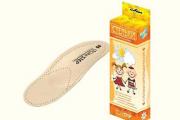17.04.2023
How to praise a child: advice to parents. Recommendations for adults “How to praise a child Ways to praise a child
ON THE. KRASNOV,
school number 48, Krasnoyarsk
Words of praise and censure in pedagogical speech
"How awfully they speak!" - we often exclaim, listening to the speech of our growing children. Indeed, slang words, vocabulary, like Ellochka Shchukina, and even these few words cannot connect, rudeness is simply murderous. Sad? Not that word. Why do our children say this? What influences their speech? “Strange question,” many will say. “Television, films, especially Western ones, the street, the family.” But what about the school? After all, a child of school age spends most of his day (approximately from 8 am to 3 pm) at school. And he communicates at school not only with the same, badly speaking teenagers, but also with smart, educated, polite teachers. I assure you, there is no sarcasm in the last phrase. Most of the teachers in our school are really smart, educated and polite. And, of course, the speech of teachers cannot but influence the formation of the personality of a growing person. However, as sad experience shows, it has very little effect. What's the matter?
To answer this question, Yana Berezhnykh, Nastya Dobrova, and Katya Laletina, students of our school, and I monitored the speech of teachers for two years. Colleagues and their students helped us. We received serious help from the head of the School of young philologist A.N. Speranskaya.
We have identified several basic situations of communication between the student and the teacher: the beginning of the working day, the beginning and end of the lesson, communication during the preparation of extracurricular activities, and others. We did not consider the speech of the teacher during the explanation of the new material, since the speech is mostly monologue. We paid attention to such situations of communication when the teacher comes into direct contact with the student. Some of the results of our observation seemed interesting to me.
We decided to see with what words of the teacher the schoolchildren's working day begins, and asked the children to write down the first phrase of the teacher, with which he addressed them today. About three hundred people were interviewed. It is gratifying that for half of the respondents, the working day began with a greeting: Hello! Good morning! Welcome! The other half were less fortunate. Guess what phrases came in second place? Right! These were phrases regarding interchangeable shoes: Change your shoes! Show change. Where's the shift, you bastard? For some children, the working day began with unusual teacher phrases: Don't push around the table, you're not a clubfoot! Aha!!! When you knock, you need to open the door yourself, and you need to knock harder! Signor Tomato in green speck!
Make a conclusion with what mood the student’s working day begins and what skills of good speech he acquires.
Then we got answers to the question: what words do teachers start and end lessons with? It turned out that out of forty lessons, only four began with a greeting. These were foreign language lessons. Of course, the other teachers also greet, but before the greeting they say other words. Most often these are calls for silence and order: Stand up straight. Quiet. Shut your mouths! and sometimes claims: Why are you so bad on duty? What's the skirt? When was the last time you cut your hair? Goodbye children are also spoken only by teachers of a foreign language (in a foreign language). Why be surprised if we do not hear "magic" words from children?
We paid special attention to phrases with which teachers praise students and express displeasure towards them, because it is these phrases that have the greatest emotional impact on students. We asked students in grades 5-11 to write down these words. It turned out that the favorite praise of the teachers of our school is Well done! In second place is the word smart girl, on the third - Fine. The remaining expressions are combinations of these words: Well done. ok smart girl. There is very little diversity in praise, as you can see. But in expressions of displeasure, teachers are more inventive and emotional: Today, perhaps, who died or bury me? Only maids are offended. Have you been watching porn movies all night? Why did you come here in such a mess?
It's nice that among the expressions of displeasure there were many such in which teachers do not humiliate the student, but emphasize respect for his personality: You are capable of the best if you try. I think that tomorrow you will please me more.
We also asked the teachers themselves to name the expressions that they use to praise and blame the student. Something interesting came up here. It turned out, for example, that the word Well done teachers, in their own opinion, speak much less often than his students hear. Praise, they believe, sounds more detailed, justified: Very good! Smart and concise. Fine! I would like you to always prepare for lessons like this.
And yet there are far fewer varied praises than varied censures. In general, the teacher in the eyes of the teacher looks much more attractive than the teacher in the eyes of the student.
Next, we decided to give the students the opportunity to come up with praise and blame for themselves. The guys were asked to answer the question: “How would you praise a student and express displeasure towards him, being in the place of a teacher?”. We assumed that the praises invented by the students would be more interesting and varied than those of the teachers, but our assumption was not confirmed. We saw the same already sounded Well done, Fine, smart girl. Interestingly, some students presented us with expressions that are more appropriate in relation to a small child: Oh my favorite! Well done, tyuti my baby doll!
We think that such phrases speak of an unsatisfied need for a kind word.
Analyzing the expressions of displeasure that students choose for themselves, we once again made sure that negative vocabulary sounds at school more often than positive ones. Interestingly, while outraged by the harshness of some teachers, the students themselves are even more harsh: Scoundrel! You bastards! Bastards! We expected to find expressions softened and embellished with humor in the censures offered by the students, but we saw nothing of the kind.
After analyzing the collected material, we came to the conclusion that the expressions of praise and blame heard at school (especially expressions of praise) are very poor lexically. We did not meet phraseologisms, winged words and expressions among them at all, synonymous rows are poorly used. Of course, at school, the teacher is an official person, and therefore he is limited in the manifestation of emotions. O.B. writes about this. Sirotinin in his book “What and why a teacher needs to know about Russian colloquial speech”. But she also notes the lexical poverty of teachers' speech.
It is known that in the Russian language there are more emotionally negative vocabulary than emotionally positive ones. Our study confirmed the same. Despite this, we believe that an emotionally positive speech background should prevail in the school. Teachers' speech can and should contribute to this. We offer teachers a dictionary-reference book "How to Praise a Student", compiled on the basis of well-known dictionaries of the Russian language. We hope that our vocabulary will help teachers make praise more expressive. The attached version of the dictionary is not complete and final, work on it continues. In addition, we are working on a dictionary of censures. It will include words, expressions, proverbs, sayings that will help the teacher to express his dissatisfaction with the student emotionally, witty and correctly.
A
Careful
Accuracy (accuracy) - courtesy of kings
B
unmistakable
Without a hitch without a hitch
immaculate
Irreproachable
Unmatched
Thank you
Brilliant
Brilliant
Rich fantasy
Divine
Fight with yourself
Take the bull by the horns
Take on board
Take an example
Take on mind
Letter to letter
Fast
IN
Polite
Fabulous
Great Army of Labor
Great minds converge
Loyal
Invest your soul
own the word
Ruler of thoughts
Attentive
imposing
Contribute
Delightful
rising luminary
Forward without fear and doubt
Quite enough
in the sweat of your face
With all my heart
With all my heart
G
Genius is patience
eyes are burning
Burning in your hands
D
Give a hundred points ahead
benign
in good faith
Until the seventh sweat
Reliable
Soul and body
E
His example is science to others
AND
Desired
burning
|
W
Funny
Set the tone
Tempting
Wonderful
Amusing
Deserved
Plug in the belt
Breathtaking
Knowledge is power
Know your worth
Knowing
Skillful fingers
AND
Follow in the footsteps
Sincere
Executive
Serviceable
Truly faithful
TO
Like on a picture
as written
The mosquito will not undermine the nose
ebullient activity
Colossal
Correct
Beautiful
Who knows more, and books in his hands
L
Logical
Beam of light in the dark realm
Curious
M
Master
good job
We have a road for young people everywhere
H
Observant
Got my mind
On high
marvelously
On an equal footing
For glory
Resourceful
The sciences feed young men, give joy to the old
On yat
I don't believe my eyes
I don't believe my ears
Not a bastard
Unusual
Out of years
unsurpassed
Tireless
ABOUT
Exemplary
one to one
Special
Heartily
Open
Great
Charming
|
P
first class
Befitting
reap the laurels
Teachable
Startling
Get to the point
With sweat and blood
Correct
legitimate
Excellent
Raise to the skies
transcend yourself
Beautiful
Decent
Nice
high flying bird
Guiding star
R
workable
please
Developed
Luxurious
Reasonable
WITH
Themselves with mustaches
Along with the age
light head
With soul
Seven spans in the forehead
Seven sweats gone
Glorious
quick-witted
smart
quick-witted
With an open mind
Diligent
Swift
With a clear conscience
With feeling, with sense, with arrangement
T
Talented
Explanatory
Accurate
Hardworking
Thoroughly
a thousand times right
At
Confident
Amusing
Successful
Amazing
Relevant
good girl
Persistent
Successful |
Praise is essential for a child. But this must be done correctly, only then will education be successful.
How to raise children so that they grow up not only happy, but also self-confident, so that they can firmly go towards their goal? Use praise in education - it works wonders! Psychologist Anna Trukhan will tell you how to praise a child correctly.
Why praise?
Praise has, even in small amounts, great power and is necessary for any person, almost like a breath of water or fresh air. It gives fresh breath, irrigates and nourishes desires and aspirations, motivates.
It is necessary to praise the child. Praise, in part, helps him create a positive and realistic image of himself. She concentrates the child on his successes, strengthens self-confidence, motivates for new achievements. Thanks to her, children have a desire and interest in new activities.

And if the child is not praised enough?
The lack of praise, ignoring the efforts of the baby leads to the opposite result. Children lose interest, they become apathetic, indifferent, lazy.
Children who are shy, shy, anxious need a lot of praise. Such a baby needs even excessive praise at an early stage. As soon as the child's anxiety decreases, activity appears, it is important to gradually reduce the amount of "sweet medicine".
A girl needs to be praised, but not a boy?
The issue of praise is always controversial. There is an opinion that a girl should not be praised for what she has done, so that she has a stereotype that recognition will come to her only for her achievements. The daughter must be praised for the fact that she simply is - smart, beautiful, hostess. The boy is the opposite.
There is a clear distinction between praise and compliments. It is great if the future woman from an early age will be able to accept compliments. This skill will help her avoid many problems in the future. But the lack of praise for the efforts or achievement of a future woman can do harm. Compliment and praise your daughters wisely. It does not interfere.
***
Remember, what you attach importance to, what you focus on your and your child's attention, then it becomes the cornerstone, accompanies both of you throughout your life, is fixed in the child.

How to praise
In order for the child’s self-esteem to remain adequate, and praise does not turn into honey baklava, remember a few “commendable restrictions”:
- It is necessary to praise for specific actions, deeds, avoiding assessing the child himself (do not get personal).
- Avoid laudatory odes to what the child is given by nature (external data, flexibility). The child must be praised for the fact that it is not easy for him and he has to make efforts.
- Do not compare the child with others, avoid the comments “You did it better than Vanya”, “Masha will never write like that.”
- Praise new efforts and achievements. Appreciate wisely.
- Do not dwell on what the child has already learned to do well. Expand the area of its development.
***
For example, you have repeatedly praised the child for the fact that he learned to hold a spoon on his own. The kid, again picking up cutlery, looks at you with expectation. You should note that you see how well he can do this, and that you have already praised him many times for this diligence. Define a new landmark for the child - do not spill the contents of the spoon, gain less. Now, praise your child for eating neatly. And express praise for the previous skill with an approving look, a nod of the head or a light stroke. Gradually and completely reducing it.
Your emotions matter
It is important to articulate changes in behavior to your child.
Praise your child emotionally.
The younger the child, the brighter the emotional coloring of your praise should be. Learn and teach your baby to show positive emotions, enjoy success.
Praise must be sincere.
Children feel falsity and uncertainty in the words of adults. Praise the child can be both voice and gestures. The main thing is that the baby understands that his effort is noticed and approved.
Comparing the child's achievements with his earlier successes
, avoid words that devalue and nullify praise: “finally you did it”, “did you succeed? I thought this would never happen!”
Consider the child's age.
Agree, if you praise a 3-year-old kid for brushing his teeth on his own and without reminders, the kid will be proud of himself. But if you, for example, tell your sixteen-year-old son: “Great, you brushed your teeth yourself, I don’t need to remind you of this!”, most likely, the son will be offended by you.

Adverse reaction
Sometimes, said with the best of intentions, in addition to pleasant feelings, praise can cause another, unexpected reaction.
The more extravagantly we praise, the more doubts we arouse in children.
***
Your first grader made his homework debut by painting a picture of a summer vacation. You, with the best of intentions, react: “Great drawing! What a beautiful!" Judgment words such as beautiful and gorgeous can make children feel uncomfortable. And in response to your eloquence, the newly-made schoolboy, in this case, will return for clarifications: “Did you really like the drawing?”, “Am I done?”.
How to raise a successful child?
Author and parent-child relationship expert Adele Faber, in her book How to Talk So Kids Will Listen and Listen So Kids Will Talk, writes about helpful praise, which has two parts:
- The adult respectfully describes what he sees or feels.
- The child, having heard the description, is able to praise himself.

For example, when looking at a child's drawing, describe what you see: “I see you have chosen a lot of bright colors for your drawing. You drew a large circle with a yellow pencil, lines go from it in different directions, etc. I look at your drawing and remember summer! The mood becomes sunny!
Most likely, after hearing your words, the child will be pleased with himself. Such praise reinforces his confidence that he did everything well.
Learn to praise children, talk about your feelings, reinforce the confidence that they are noticed and significant. Every day, expand the worldview of the child, teach not to be afraid of mistakes, travel, make new discoveries, be on the same wavelength with nature, and of course, eat right and fully - this is the basis of all the basics. All this will help your little fidget to become a successful and self-sufficient adult.
7
9 715
0
Who among us does not like to be praised or encouraged? Self-esteem instantly rises, strength, inspiration and a desire to prove that praise is really deserved appear. Praise has a three times stronger effect on a child, therefore, dear parents, feel free to use this magical tool in raising your children.
However, remember that you need to praise correctly, otherwise the educational method will do you a disservice.
How to properly praise a child from a year old, you will find in our tips and recommendations.
You will need:
Know when to stop
Finding the "golden mean" in the promotion is very important. The slightest step to the left or right can have a detrimental effect on the educational process.
If a child is praised too little, he gets used to the idea that he cannot do everything well, and this is a direct path to low self-esteem and the inability to analyze actions, distinguishing between good and bad.
If there is too much praise in a child's life, then two consequences are possible in his behavior.
- The first option - a person becomes dependent on praise, constantly expects it and can no longer do anything according to his inner impulse. That is, he becomes dependent on external judgments and cannot adequately evaluate himself.
- Another possible reaction is that the child quickly gets used to praise, perceiving it as a normal everyday thing. From this, she loses her stimulating power, which means that the influence on the motivation of the child is missed.
The measure of praise for each child is different. Timid and insecure children need it more than anyone else.
To understand where the measure ends, take a closer look at your child: does he live up to your expectations, does he respond to your requests.
Always ask yourself before you praise a child: does he need my approval right now?
Praise for specific actions
Abstract praise is a completely meaningless thing. If parents praise the child, saying that "he is a good boy", then he simply will not understand the essence of what was said. It would be more correct to tell him that he did well, because he helped to wipe the dust.
The more specific your praise is, the clearer the message for the child will be: I do this well.
When pointing out the actions of the child, try to express your thoughts in a language that is understandable to him. There are plenty of available words for praising a 2-3 year old baby: “kind”, “polite”, “honest”, “helper”, etc. A clear and accessible wording of praise is a necessary condition for it.
Not every exemplary act needs to be praised. If your child is neat, cleans up things and toys without being reminded, then emphasizing his neatness as praise does not make sense. This is the case when the measure of encouragement is exceeded, but not quantitatively, but qualitatively.
Study your child and focus, first of all, on those actions that are difficult for him.

Praise the effort, not the result
When praising a child, look straight to the root - an attempt to commit a worthy deed deserves the highest praise. Even if the quality of this act leaves much to be desired, in no case should you pay attention to its negative aspects, otherwise you risk depriving the child of inspiration.
Unfortunately, it is not uncommon for a mother to irritably brush off a child, ridiculing his help. In these moments, there is nothing more offensive to the little man than a mockery of his efforts to help. Even one such instance of harsh treatment of the child's feelings is enough for him to refuse to help in any way at all.
Be wise parents - find a precious grain in the actions of your little helper, even if they are inept.
“Thank you for trying to wash the dishes, you helped me a lot” - a golden phrase that will perk up a child. After thanking you, take a short pause and only then can you say: "The bottom of the plates is so difficult to wash out, let's try together."
Avoid Superlatives in Praise
Of course, it’s good if you consider your child to be “the smartest”, “the most honest”, “the best”, but you should not repeat such words to him often. Superlatives in words of praise for children put some pressure on them. Since praise is an incentive for desired behavior, your child will desperately try to meet your expectations of the “best” child on earth. Alas, such an endless pursuit of perfection does not at all contribute to high self-esteem, as many parents think.
On the contrary, in the eternal pursuit of unattainable ideals, children feel a breakdown, because the burden is unbearable.
Therefore, self-esteem can be shaken and go in the opposite direction to expectations.
The comparative degree is also inappropriate here. Comparison in praise with other children is a big parenting mistake. Saying that your child is doing something better than Kolya, Masha or Serezha, you form in the child a sense of superiority over other children and a dismissive attitude towards them.
You can only compare a child with himself yesterday, emphasizing that he succeeded today better than yesterday.

Reinforce praise with non-verbal means
The art of praising a child is associated with non-verbal communication techniques.
A smile, a hug, or a kiss are important emotional components of praise. They indicate the sincerity of the words of the parents and inspire the child even more.
Watch your intonation when you say kind words: in no case do not let a bad mood sneak into a conversation with your child.
Listen to the wise advice of psychologists: kiss and hug your child as often as possible, at least eight times a day.
By doing this, you not only reinforce his positive behavior, but also demonstrate your unconditional love.

Every person needs praise and support. Encouragement from others gives strength, inspires and encourages new achievements. Moreover, if in adults encouragement and praise are expressed in an increase in a bonus, a promotion or another award, then for kids, an affectionate word is enough for this.
Whether the baby draws a portrait of his mother, whether he brings home a good mark, takes out the garbage or cleans up the house, in any of these cases he expects approval and praise from him. But not all parents do it correctly and in a timely manner, thereby harming their child. What is the harm in question and how to praise your child correctly? Let's talk about it in our article.
To begin with, parents should understand that support and praise are not the same thing. These concepts are certainly interconnected, but their meanings are completely different. For example, the word "well done" will never replace the words "I understand" or "I love", although in real life it often replaces. This is where the negative consequences of improper praise come to light.
What is wrong praise
1. Getting used to praise
Regularly encouraging our baby with the words “good” and “well done”, we accustom the child to these guidelines. That is, the child is constantly waiting for a parental reaction, approval from adults. And even as an adult, such a person cannot refuse praise, feeling the need for approval of his actions. But the most dangerous thing is that he develops dependence on the opinions of the people around him, which can be projected onto life in the most negative way.
2. Loss of interest in the process
It is important to pay attention to one more aspect. Getting used to receiving a reward in the form of praise, the child stops doing something for the sake of the result, because he is only interested in the parent's reaction. For example, he creates an application not for the sake of receiving beautiful picture, but solely for the sake of the words "clever" and "well done." Moreover, the baby shows his best qualities, namely, the kindness of the soul, responsibility, care or generosity, only for the sake of kind words addressed to him, and not at all at the call of his heart. And this is another not the most favorable factor that will definitely let you know about yourself in adulthood.
3. Manipulating a child through praise
Saying the phrase “excellent” or “well done” to the child, we try to hold the baby. But this is the real “reinforcement method” in action. The essence of this method is to encourage each positive act of the object with an affectionate word or treat. In this way, fixing in the mind of the object of the correctness of this or that behavior is achieved.
And it seems that bad in the method of reinforcement? That's just encouraging and praising the child for a certain behavior, we do not think about whether it is reasonable for the child himself. For example, is it right to scold a child for running around the apartment, and is it reasonable to praise him for sitting quietly in a chair? For the most part, that's exactly what we do. And for a child who has a lot of unspent energy, it is completely natural to run and jump all day. As a result, he humbly sits on a chair and suffers painfully, and all for the sake of the approval of dad and mom. However, a misunderstanding is brewing in the child’s head - why are completely harmless and positive things disapproved of by parents, are they really so bad and harmful? Such contradictions in the mind of a child can harm the psyche.
4. Lack of joy for your successes
We often hear how parents rush to praise every act of their child. He climbed the stairs - "Clever!", fashioned an Easter cake - "Oh, what a fine fellow!". However, this is not the most correct approach in education, although some psychologists assure the public that by praising a child as often as possible, you orient him to success. It is necessary to praise the child correctly, and by praising every step of the baby, parents take away from him the opportunity to enjoy his success on his own. Doing this over and over again, is it any wonder that a child, having painted a landscape with paints, does not run up to you with pride in himself and the question “Did I draw beautifully?”, But immediately asks “Am I done?”.
5. Reduced motivation in a child
According to psychologists, if you constantly praise the personal qualities of the baby, in the future, when faced with difficulties, he will experience difficulties. This is proved by studies conducted by scientists from the United States. Two groups of students were asked to take the test. One group of toddlers was praised for their intelligence, saying, “You are good at the task,” and others for their efforts, “You tried very hard.” After that, two groups of children were asked to choose the next test, and they were offered two tasks to choose from, one more difficult, and the other similar to the previous one. It turned out that children who were praised for their efforts chose the most difficult test, while those kids who were encouraged by noting their intelligence chose the easier task.
As you can see, you still need to be able to praise a child. But how to do it right? Take note of the following advice from psychologists.
1. Praise children for specific actions.
You need to celebrate the success of the child in such a way that the baby understands what good he did and what exactly it is good for. For example, when looking at a baby’s drawing, pay attention to the image itself “You got a beautiful sun!”, “The bird looks like a real one!”. On the contrary, try not to use phrases like “You are a real artist!”, “What a great fellow you are!”. Remember, even a baby needs to be praised adequately, according to the situation, paying attention to his act, and not to his personality. In addition, you can make it clear that the baby has completed a difficult task by saying: “Draw such a A mok is very difficult!
2. Always reinforce praise with non-verbal elements.
In order for the baby to feel the sincerity of your words and see that you rejoice in his victories, and not just pronounce a standard set of phrases so that the baby “gets off”, reinforce your words with smiles, hugs and kisses. In general, psychologists recommend hugging and kissing your child at least four times a day.
3. Do not compare your baby with other children
This is a very common habit that should be eliminated as soon as possible. Parents should understand that they cannot compare their child with other children, constantly focusing on the things that he did better than Kolya, Sasha or Dasha. In this way, you develop a sense of superiority in the child. If this feeling rests only on parental praise, in the future it will be very painful for such a person to realize that he is no better than the conditional Sasha or Kolya.
Your child did something good, how can you react to it?”
1. Say nothing
This approach is very consonant with the Montessori method. Maria Montessori wrote that by nature the child does not need praise. It contains the desire to know and create, and praise cannot affect his intrinsic motivation in any way, only if child no longer crippled by constant evaluations from parents. In Montessori classes, it is generally not customary to praise, to express value judgments, and children quickly get used to this and master the ability to independently evaluate their results, learn to check themselves, check with the model. This eliminates the need for children to contact the teacher every time with the question of whether he completed the task correctly.
2. Indicate your presence with a look or gesture
Sometimes it's important just to be there child and words are not needed here. If child turns his gaze to you, wanting to attract attention, then you lovingly look at him in response (psychologists call this effect "to convey love through the eyes", or touch with your hand, hug. These subtle actions from the outside will say a child about a lot: that you are nearby; that you care about what he does. Whatever age you are child, he will be pleased with hugs, kisses and caresses.
The classic of English literature Joseph Conrad noted that “Kiss is what is left of the heavenly language”.
One famous Dr. Virginia Satir advised to hug the child several times in day: after all, every baby needs at least 4 hugs a day to survive, and in order to child felt good, he should be hugged at least 8 times a day.
Such signs of manifestation of love nourish the emotionally growing organism and help it develop mentally.
3. Say child about, What see: “What a beautiful car you drew!”, "You buttoned your jacket yourself!" Child does not need evaluation, it is important for him to know that you see his efforts, notice the efforts that he makes.
Supporters of this approach are well-known experts in the field of communication with children A. Faber and E. Mazlish recommend to praise the child like this for positive actions. Thus, you will not only express words of approval to the children's act, you will look into its essence, and also show that you respect the efforts child.
4. Ask child about his work: "Do you like your drawing?", "What was the hardest thing?", “How did you manage to draw such an even circle?” With your questions you will push child to reflect on your work and learn to evaluate your own results.
5. Express praise through the lens of your feelings
Compare two phrases "Excellently drawn!" And “I really like how you drew this ship!” The first one is absolutely impersonal. Who painted what is painted? In the second case, you express your attitude to work child, marking the moments that you especially liked.
6. Share the score child and action evaluation
Try not to focus on abilities child, but what he did, and mark it in your praise: “I see that you have removed all the toys. It's great that the room is now clean", instead of "What a clean-cut me you are!"
7. Praise the effort, not the result
Celebrate efforts child: “It must have been difficult for you to give half of the candy to your friend. That was a generous act of you!” or “How neatly you wrote these letters, I think you did a great job!”. So you show to kid that you appreciate his efforts and understand that being generous, careful, etc. is not so easy.
In addition, in our life it is not always possible to achieve the highest results in everything, for example, it is not always possible to be an excellent student. If you praise only for the fives - that is, for the result, and not for the process itself, that is, for the efforts - then often children quit classes in which they cannot quickly achieve success.
8. Praise with words that reflect your values so you teach child values important to you. If you are trying to bring up the quality of responsibility in your son, note This: "I like that you did my task yourself and carefully watered the flowers."
9. Avoid using in praise words in superlatives. For example: "best", "most", etc., so necessarily in the environment the child will be found who dances better or who made up the most interesting story, child it will notice and feel the falsity in your words. Just say that you are proud of his success and notice his efforts.
10. Praise with words that are yours the child understands. Words praise“The illustration for the story is just a masterpiece!” replace “Your drawing turned out colorful!”.
11. Express your thoughts clearly so that to kid it was easy to draw a conclusion about who he was and what he was
Components praise is 1) our words and 2) children's conclusions. When we want praise the child, you need to express as clearly as possible a positive assessment of the act committed by him, try to express his thought in such a way that to kid it was easy to deduce who and what he was. Here are some examples of correct praise.
Correct praise Wrong praise
Situation #1 Child helped dad wash the car.
1. “Thank you son, you washed the car great - look how it sparkles!” 1. "You're just great"
Conclusion child: “I did my best, dad appreciated my efforts” Conclusion child: there is nothing to draw a conclusion from!
Situation #2 Child draw a picture and show it to the parent.
2. Your drawing is so colorful - especially the butterfly wings.” 2. “Not badly drawn for your age…”
Conclusion child: “I can draw butterflies - how cool!” Conclusion child: “I didn’t live up to a certain ideal, it can be better”.
Situation #3 The daughter washed the dishes.
3. “Thank you, daughter, I washed all the dishes, now the kitchen is in order”. 3. “So even mom can’t wash the dishes!”
Conclusion child: "I'm smart, I helped my mother, now she can rest". Conclusion child: “Mom exaggerates, probably doesn’t want to upset me”
12. Be happy for child. The famous Nikitin family believes that it is specifically to praise no need for a child: If child did a good deed - you should be happy for him. "I'm glad when...", I feel happy if you…” or just smile, clap your hands. Everyone can check it out yourself: if someone is happy for you, you gain self-confidence, are ready "move mountains". At the same time, you feel a sense of gratitude and appreciation for someone who is sincerely happy with your success. These feelings bring people together, make them closer.
13. Use I-messages in praise.
Eat "I-messages" And "You-messages" V praise. For example, You-messages - can sound So: "You are so good!", "You're smart, you tried so hard!". I- messages: "I'm so proud of you!", "I'm delighted!", "I am so glad!".
You-messages are perceived by children as a statement fact: "I did it well!" It's nice, of course. But I-messages carry great emotional value for child than You-messages, many times! If you express praise through the lens of your feelings “I really like the way you drew this drawing!”, That child it perceives So: my parents see that I do it well, and it means a lot to them.
If you say baby: "I'm glad you let a friend play with your favorite car", then it sounds much more accurate than the phrase "You are very generous". After these words child and will continue to want to share his toys, because his mother respects him for this.
14. Be sincere when praising child.
Be sincere and honest. Do not exaggerate. Don't flatter. Flattery looks in the eyes baby cheap and fake. Very soon, the baby will reveal your insincerity, and then he will begin to be suspicious of any approval from you.
15. Be specific when encouraging child.
Send only general comments "Fine", "Great", "Wonderful" easily. Using specific descriptions is a little more difficult because you have to go deeper into what child busy and whether he is doing what he is doing well enough. But it's worth the effort. Description makes praise sincere and genuine.
16. Don't compare yourself child with other children
Praise child for his efforts but not because he is better than any other child. Don't compare him to other kids. Everyone has it baby your talents. Every baby is unique. Encourage children to develop their own personality.
17. Don't mix praise and criticism.
If you praise child and then you start criticizing him, explaining that he could do it better, thereby making him think that he was not good enough. talking “You told the poem well, but you need to add expressiveness”, you mix praise and criticism. The child will forget the praise, however criticism he will remember.
18. Praise child in public
Everyone likes to be praised in public. So approve and encourage child in the presence of others. Let the children hear how you speak positively of them.
19. Do not drag previous mistakes from the past.
Never tie praise with any previous unpleasant event. For example, if you say "I thought you'd do it just as badly as last time, but you did it." Even though you tried praise the child for current accomplishments, you have linked them to a previous failure. A reminder of a previous mistake can create confusion and confusion in the minds of children.
20. Take your time
If you're in a hurry, just hurry up praise the child, he begins to suspect you of insincerity and thinks that you are doing it automatically. He will start to ignore you. praise and, even if you are sincere, next time he will not pay due attention to them.
As you can see, the range of possibilities to express approval to child quite broad and certainly not reducible to standard value judgments. Does this mean that parents should completely abandon the words "Well done", "Fine", "Great". Of course not. It would be wrong to restrain oneself in those moments when actions child evoke positive emotions in you. But still there is one of the most reasonable arguments in favor of expanding the range of ways praise the child- this is an opportunity to once again tell him about your feelings, to teach child think about yourself, instill confidence in their abilities, etc.
And there is no need to explain that the word "Well done" unable to replace words "I love", "Understand", "rejoice", "I see".






















